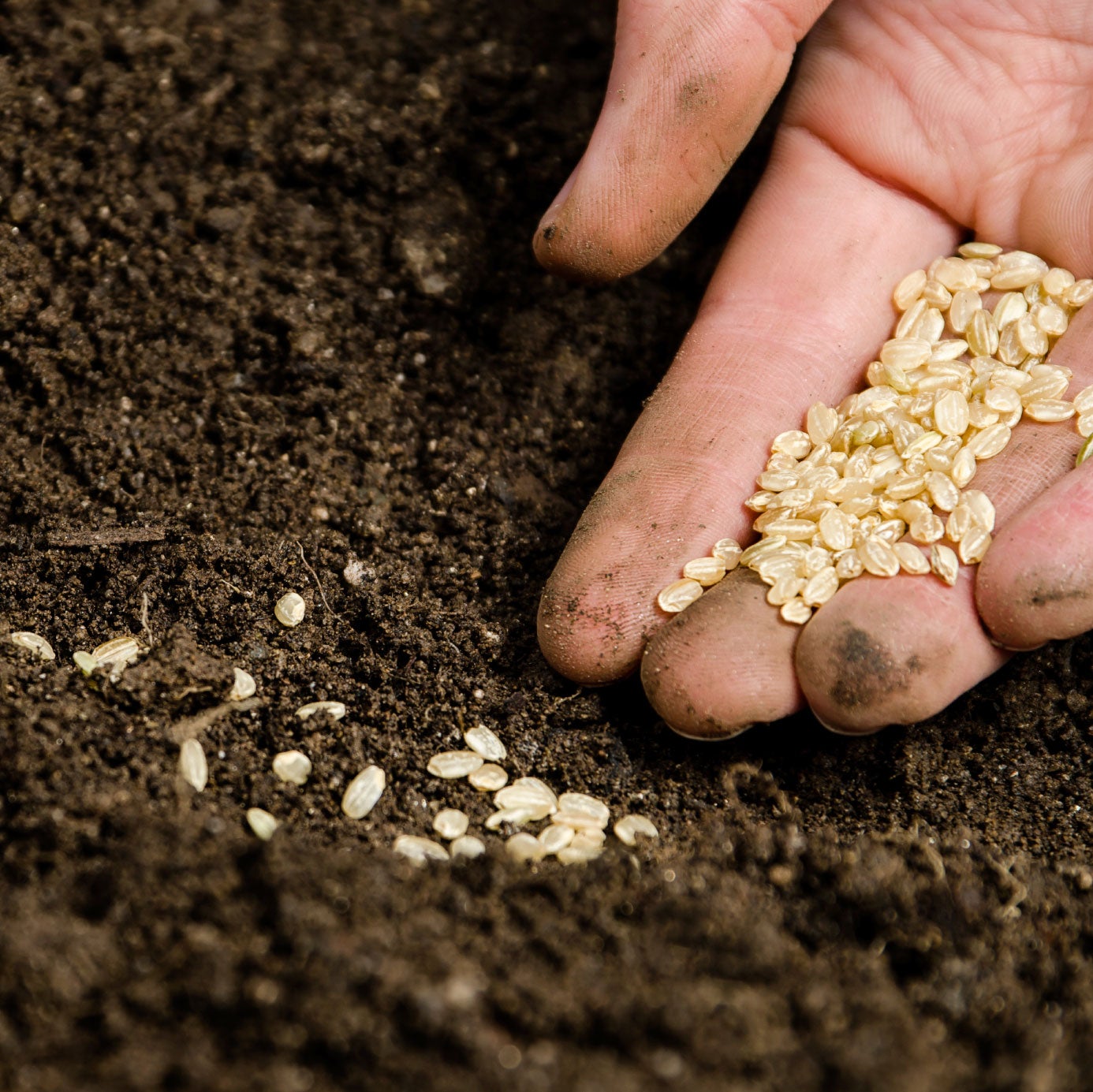Organic Seed Information: Using Organic Garden Seeds


Did you ever wonder what constitutes an organic plant? The United States Department of Agriculture has a set of guidelines for organic materials, but the lines have been muddied by the introduction of GMO seeds and other altered species. Read on for a guide to true organic seed gardening so you are armed with information to protect you and your family.
What are Organic Seeds?
The natural gardener has an eye for healthy gardening practices and seed varieties that have no chemicals and strains of pure wild foods with no genetic altering. This is a tall order in today's agricultural market where big companies control most of the seed that comes to the marketplace, introducing their own adjustments to these seeds in a bid to control aspects of these plants. What are organic seeds? It is an unaltered seed that comes from a purely organic raised plant. Organic seed information comes from the United States Department of Agriculture guidelines and relies upon committed farmers to ensure that the seed is in compliance with regulations.
Organic Seed Information
In order to understand what organic means, you have to know the government's definition. Organic gardening follows a set of rules created by a body of our government that concerns itself with all things agricultural-- the USDA. Organic gardens must grow plants in a healthful environment with limited and specific chemical use. A few types of herbicides and pesticides are available to the organic gardener but the list is short and the application methods and amounts are restricted. Seeds from the plants grown in the prescribed manner can be labeled as organic. What are organic seeds? They are the seeds derived from plants that comply with organic systems as set up by the USDA. Any seed that has come from plants on a farm that doesn't comply with that set of rules is not technically organic.
The Rules of Organic Seed Gardening
Organic is a fairly new term to agriculture because traditionally, farmers were gardening naturally. It is only within the last century that the widespread use of pesticides, herbicides, and unsustainable gardening practices have become common. Home gardeners tend to follow the organic rules just by the requirement to know what is in their food. Large-scale agriculturalists do not have the luxury of hand weeding or non-invasive or integrated pest controls. Farming is a business and is run in the manner which is most expedient, although not always the most natural. Organic garden seeds cannot come from a farm that has used any chemical combatants or unsustainable methods. Such production is more costly, takes more time and effort, and is generally only followed by smaller farms. Therefore, organic garden seeds are not as widely available as the commercial varieties. Online sources and a few reliable nurseries can point out where to buy organic seeds. Just be sure to check the seed packet, as they are required to bear a label ensuring that the seed is organic.
Where to Buy Organic Seeds
Your county extension office is an excellent source of organic items. You can also search out organic farms near you and contact them for seed resources. However, the quickest method is to use a seed catalogue from a reputable company such as Seeds of Change, which has all organic and non-GMO seeds, or Grow Organic. Remember, the seeds are only the start of the process of organic gardening. You must follow growing practices that avoid chemicals, use nutrient-rich natural soil, and chemical-free water to continue the organic pathway, and ensure fruits and vegetables are in the most natural state possible.
Gardening tips, videos, info and more delivered right to your inbox!
Sign up for the Gardening Know How newsletter today and receive a free copy of our e-book "How to Grow Delicious Tomatoes".

Bonnie Grant is a professional landscaper with a Certification in Urban Gardening. She has been gardening and writing for 15 years. A former professional chef, she has a passion for edible landscaping.